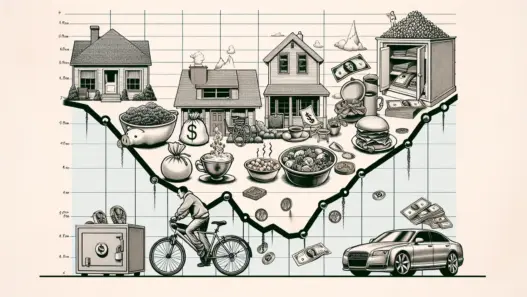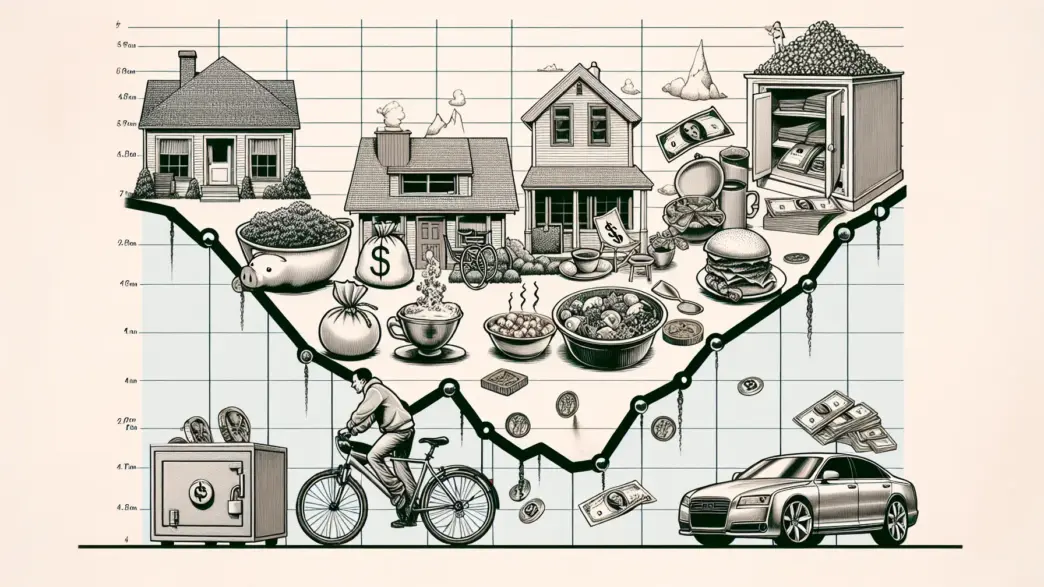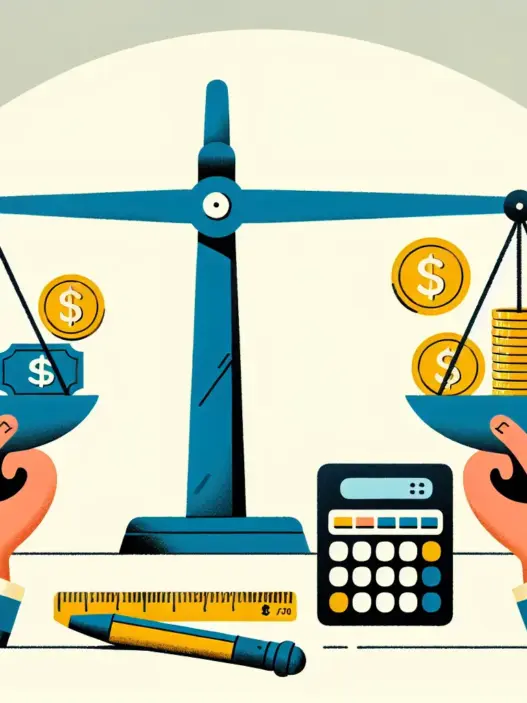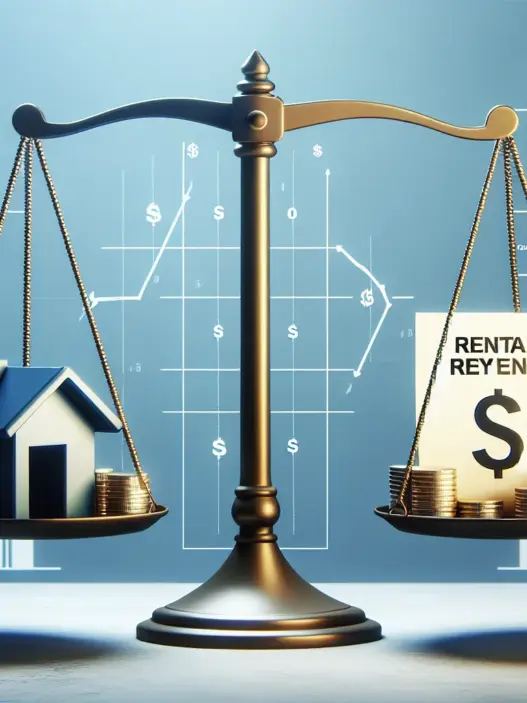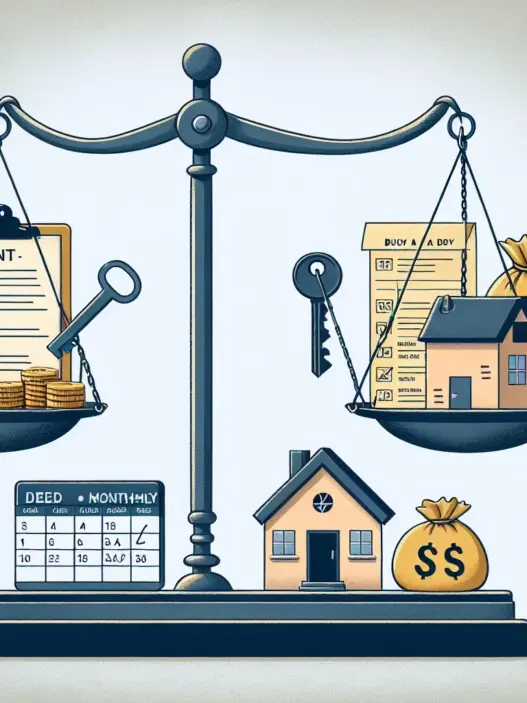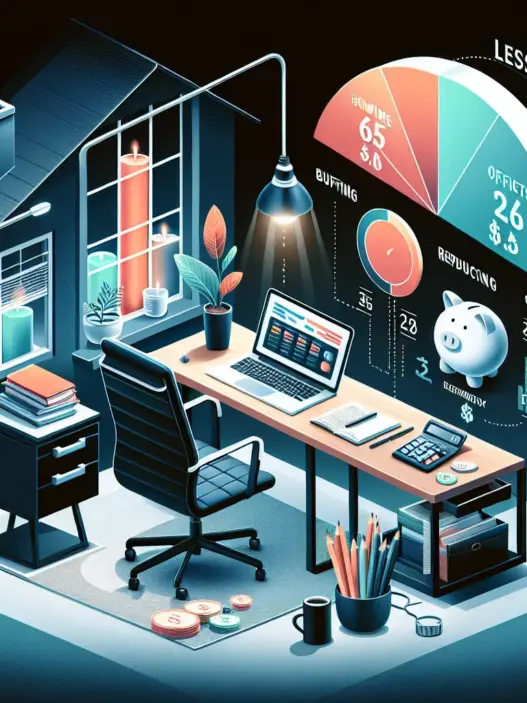Lifestyle inflation, often called lifestyle creep, can significantly affect your long-term financial goals. As your income grows, it’s easy to increase your spending, but this habit can derail your financial future. Let’s explore how lifestyle inflation works and what you can do to keep it in check.
Understanding Lifestyle Inflation
Lifestyle inflation occurs when your spending increases as your income rises. It’s a common phenomenon that can happen gradually, often without you noticing. For example, you might start buying more expensive clothes, eating out at fancier restaurants, or upgrading to a larger home or newer car. While these upgrades can improve your quality of life, they can also eat into your ability to save and invest for the future.
The Hidden Costs of Lifestyle Inflation
The real danger of lifestyle inflation lies in its long-term effects:
-
Reduced Savings: As you spend more, you save less. This means less money for emergencies, retirement, or other financial goals.
-
Increased Debt: To maintain a higher lifestyle, you might rely more on credit cards or loans, leading to mounting debt.
-
Delayed Retirement: With less savings, you may need to work longer to achieve your retirement goals.
-
Stress and Anxiety: Living beyond your means can lead to financial stress, impacting your mental health and overall well-being.
Strategies to Combat Lifestyle Inflation
Fortunately, there are ways to enjoy a comfortable life while still prioritizing your long-term financial health:
1. Create a Budget and Stick to It
A budget helps you track your income and expenses, making it easier to spot areas where lifestyle inflation might be creeping in. Learn more about creating a personal budget.
2. Automate Your Savings
Set up automatic transfers to your savings and investment accounts as soon as you receive your paycheck. This ensures you’re saving before you have a chance to spend.
3. Practice Mindful Spending
Before making a purchase, especially a large one, ask yourself if it aligns with your long-term financial goals. Discover ways to spend your money wisely.
4. Increase Your Savings Rate as Your Income Grows
When you receive a raise or bonus, aim to save a significant portion of it rather than immediately increasing your spending.
5. Focus on Experiences, Not Things
Often, experiences bring more lasting happiness than material possessions. Prioritize spending on activities and memories rather than accumulating more stuff.
The Power of Delayed Gratification
Resisting lifestyle inflation often comes down to practicing delayed gratification. By foregoing immediate pleasures for long-term gains, you can set yourself up for financial success. Learn about habits that lead to financial success.
Balancing Present Enjoyment and Future Security
It’s important to strike a balance between enjoying your life now and securing your financial future. Here are some tips:
-
Set Clear Financial Goals: Having specific, measurable goals can help you stay motivated to resist unnecessary spending.
-
Allow for Some Lifestyle Upgrades: It’s okay to improve your lifestyle as your income grows, but do so thoughtfully and in moderation.
-
Regularly Review Your Finances: Periodically assess your spending habits and financial progress to ensure you’re on track.
-
Educate Yourself: Continuously improve your financial literacy to make better decisions. Check out these personal finance tips.
The Long-Term Benefits of Controlling Lifestyle Inflation
By keeping lifestyle inflation in check, you can:
- Build a substantial emergency fund
- Invest more for retirement
- Pay off debt faster
- Have more financial freedom and options in the future
Discover strategies to become financially strong in the new year.
Conclusion
Lifestyle inflation can be a significant obstacle to achieving your long-term financial goals. By being aware of this tendency and implementing strategies to combat it, you can enjoy a comfortable life while still securing your financial future. Remember, small changes in your spending habits today can lead to substantial financial rewards tomorrow.
Frequently Asked Questions
What is lifestyle inflation and why is it a concern?
Lifestyle inflation, also known as lifestyle creep, occurs when your spending increases as your income rises. It’s concerning because it can reduce savings, increase debt, delay retirement, and cause financial stress, ultimately affecting your long-term financial goals.
How can I create a budget to combat lifestyle inflation?
To create a budget, track your income and expenses, identify areas where lifestyle inflation might be occurring, and allocate your money purposefully. Set specific spending limits for different categories and regularly review your budget to ensure you’re sticking to it.
What are some effective strategies to resist lifestyle inflation?
Some effective strategies include automating your savings, practicing mindful spending, increasing your savings rate as your income grows, focusing on experiences rather than material possessions, and setting clear financial goals to stay motivated.
Is it okay to upgrade my lifestyle as my income increases?
Yes, it’s okay to improve your lifestyle as your income grows, but do so thoughtfully and in moderation. Strike a balance between enjoying life now and securing your financial future by allowing for some lifestyle upgrades while still prioritizing long-term financial goals.
How can controlling lifestyle inflation benefit my long-term financial health?
Controlling lifestyle inflation can help you build a substantial emergency fund, invest more for retirement, pay off debt faster, and have more financial freedom in the future. It allows you to secure your financial future while still maintaining a comfortable lifestyle.









